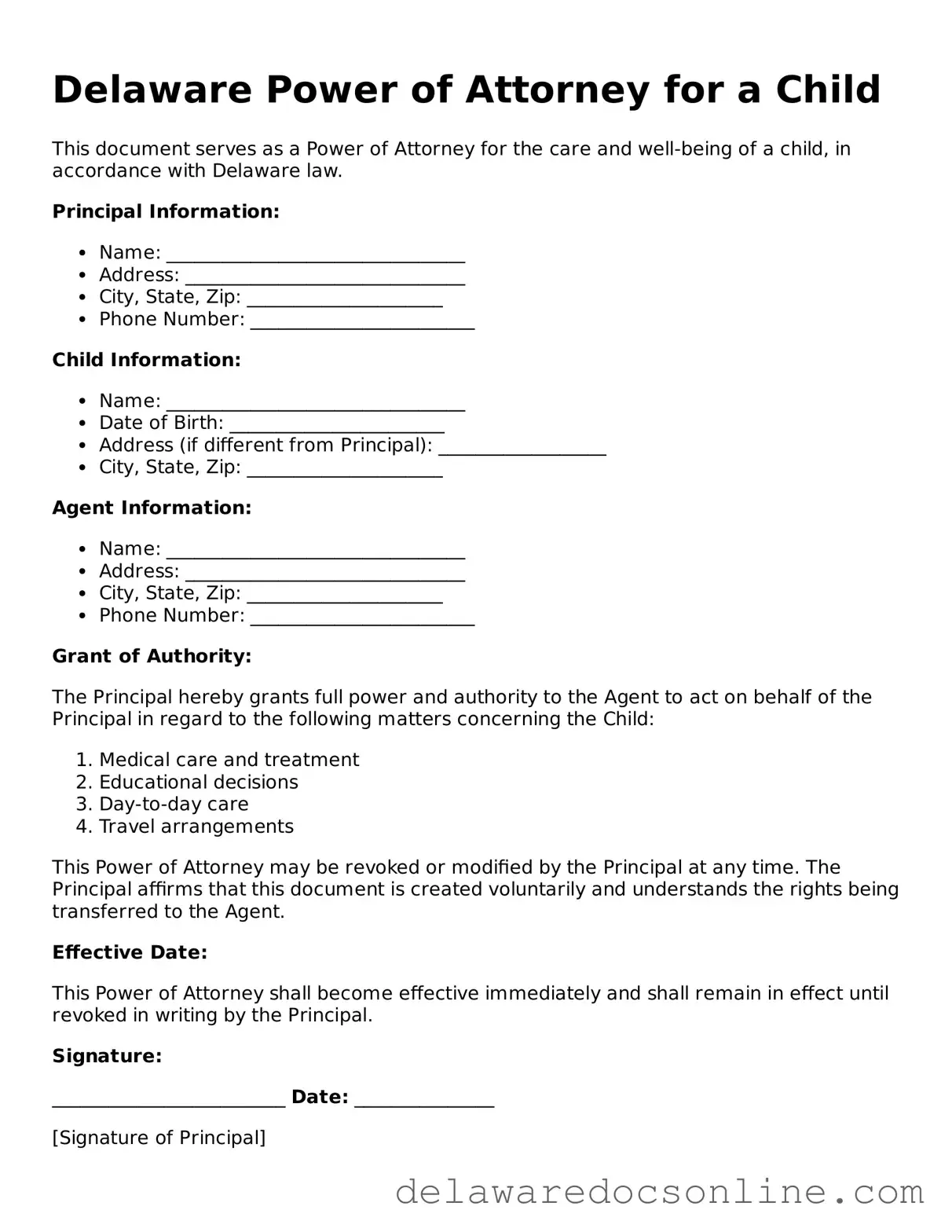Attorney-Verified Power of Attorney for a Child Document for Delaware
The Delaware Power of Attorney for a Child form is a legal document that allows a parent or guardian to grant temporary authority to another individual for making decisions on behalf of a child. This arrangement is often used in situations where the parent is unable to care for the child due to travel, illness, or other circumstances. Understanding this form is essential for ensuring the child's well-being and maintaining continuity in their care.
Make Your Power of Attorney for a Child Now

Attorney-Verified Power of Attorney for a Child Document for Delaware
Make Your Power of Attorney for a Child Now

Make Your Power of Attorney for a Child Now
or
⇓ PDF File
Need speed? Complete the form now
Edit, save, download — finish Power of Attorney for a Child online with ease.